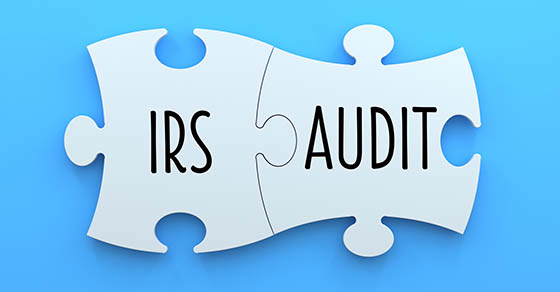
IRS audit rates are historically low, according to a recent Government Accountability Office (GAO) report, but that’s little consolation if your return is among those selected to be examined. Plus, the IRS recently received additional funding in the Inflation Reduction Act to improve customer service, upgrade technology and increase audits of high-income taxpayers. But with proper preparation and planning, you should fare well.
From tax years 2010 to 2019, audit rates of individual tax returns decreased for all income levels, according to the GAO. On average, the audit rate for all returns decreased from 0.9% to 0.25%. IRS officials attribute this to reduced staffing as a result of decreased funding. Businesses, large corporations, and high-income individuals are more likely to be audited, but overall, all types of audits are being conducted less frequently than they were a decade ago.
There’s no 100% guarantee that you won’t be picked for an audit because some tax returns are chosen randomly. However, the best way to survive an IRS audit is to prepare in advance. On an ongoing basis, you should systematically maintain documentation — invoices, bills, canceled checks, receipts, or other proof — for all items to be reported on your tax returns. Keep all records in one place.
It also helps to know what might catch the attention of the IRS. Certain types of tax-return entries are known to involve inaccuracies, so they may lead to an audit. Here are a few examples:
Certain types of deductions may be questioned by the IRS because there are strict recordkeeping requirements for them — for example, auto and travel expense deductions. In addition, an owner-employee’s salary that’s much higher or lower than those at similar companies in his or her location may catch the IRS’s eye, especially if the business is structured as a corporation.
If you’re selected for an audit, you’ll be notified by letter. Generally, the IRS doesn’t make initial contact by phone. But if there’s no response to the letter, the agency may follow up with a call.
Many audits simply request that you mail in documentation to support certain deductions you’ve claimed. Only the strictest version, the field audit, requires meeting with one or more IRS auditors. (Note: Ignore unsolicited emails or text messages about an audit. The IRS doesn’t contact people in this manner. These are scams.)
The tax agency doesn’t demand an immediate response to a mailed notice. You’ll be informed of the discrepancies in question and given time to prepare. Collect and organize all relevant income and expense records. If anything is missing, you’ll have to reconstruct the information as accurately as possible based on other documentation.
If you’re audited, our firm can help you:
The IRS normally has three years within which to conduct an audit, and an audit probably won’t begin until a year or more after you file a return. Don’t panic if the IRS contacts you. Many audits are routine. By taking a meticulous, proactive approach to tracking, documenting and filing your company’s tax-related information, you’ll make an audit less painful and even decrease the chances you’ll be chosen in the first place.
© 2022
Receive Free financial tips & Tax Alerts!
"*" indicates required fields
Businesses usually want to delay recognition of taxable income into future years and accelerate deductions into the current year. But when is it wise to do the opposite? And why…
Navigating the realm of capital gains and optimizing tax outcomes require strategic thinking and informed decision-making. Understanding and employing effective capital gains tax strategies is crucial for businesses contemplating asset…
If your business doesn’t already have a retirement plan, it might be a good time to take the plunge. Current retirement plan rules allow for significant tax-deductible contributions. For example,…